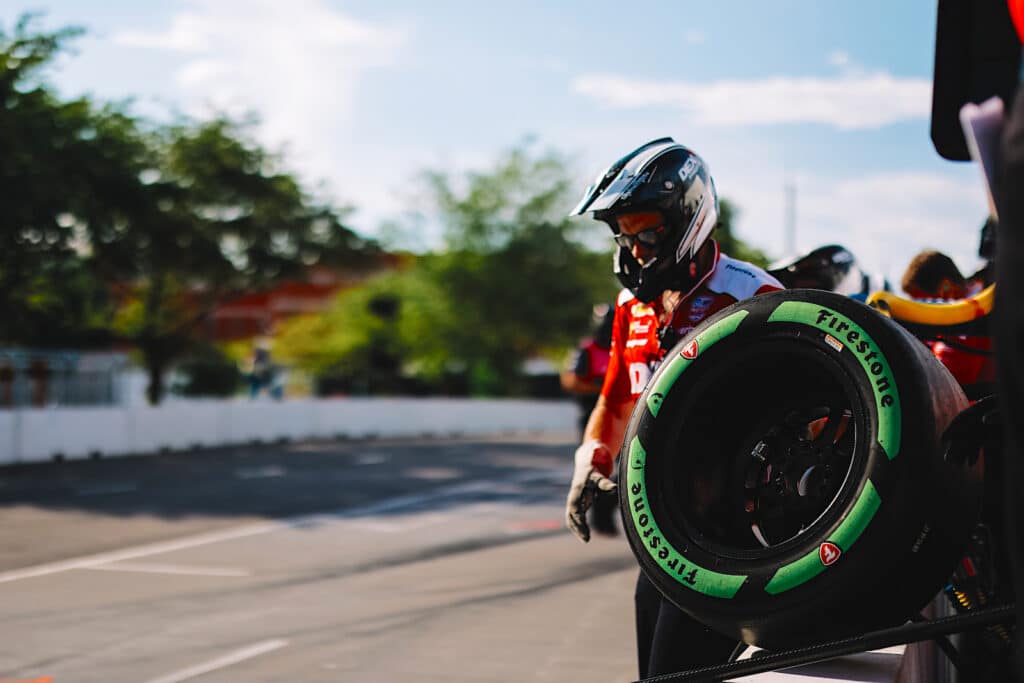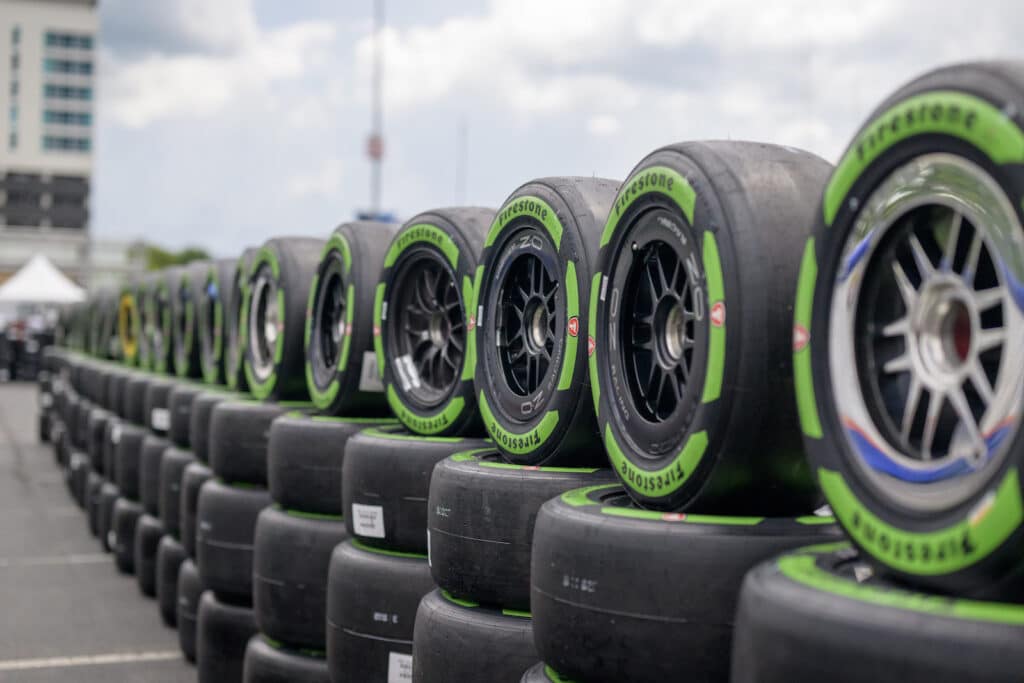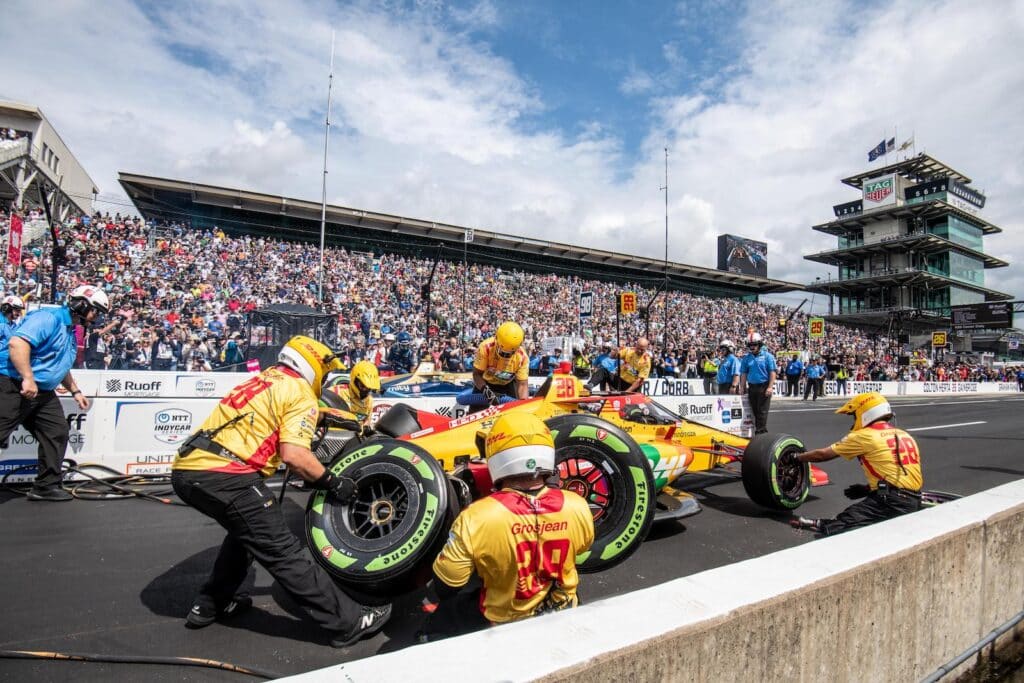
Bridgestone announced new improvements in their enhancement of tire rubber primarily based on the U.S.-sourced Guayule plant, which is native to the desert Southwest. The new rubber source is a lot more sustainable and considerably less detrimental to ecosystems than regular rubber harvested from equatorial sources.

Bridgestone’s Firestone brand has developed the new product or service into racing tires that will be applied in the 2023 IndyCar racing collection. The new tires will aid make the forthcoming year the most sustainable to day for America’s countrywide open-wheel racing series.
“We are driving sustainability in every single place of our organization, and we’re thrilled to be advancing guayule and other sustainable procedures in America’s leading open-wheel racing collection,” stated Paolo Ferrari, CEO of Bridgestone Americas.
“Firestone has a remarkable legacy of innovation and general performance in racing, which we will proceed to make upon as we move into this new period of cleaner, safer and additional sustainable mobility on and off the track.”
Guayule tires to be utilised on all IndyCar avenue races
Bridgestone is IndyCar’s exclusive tire provider, and the series will characteristic Firestone Firehawk race tires made with rubber derived from Guayule as the alternate tire in all 5 street circuits of the 17-race period. The tires have been utilised at a solitary race previous yr, so the collection is growing their use.

Also, the greater part of race tires applied this season will be produced at Bridgestone’s vitality-effective Advanced Examination Manufacturing Center (ATPC), which has now obtained International Sustainability and Carbon Certification (ISCC) “Plus” recognition for its transparency and traceability of sustainable uncooked elements.
Finally, the firm will employ ISCC mass harmony licensed synthetic rubber designed with recycled plastics in all its race tires for the 107th running of the Indianapolis 500.
The Guayule-based Firestone Firehawk race tire will be featured as the alternative tire at the Firestone Grand Prix (March 5) in St. Petersburg, Florida, Streets of Extensive Seaside (April 16), Streets of Detroit (June 4), Streets of Toronto (July 16) and the Tunes City Grand Prix (Aug 6) in Nashville, Tennessee.
In all, Bridgestone will supply a lot more than 1900 tires utilizing Guayule rubber in the sidewall. The Guayule plants giving the essential rubber sap are developed on Bridgestone’s investigate farm in Eloy, Arizona.
What is Guayule, in any case?

“Guayule is a shrub that is been all-around a really very long time,” said Cara Krstolic, main race tire engineer at Firestone. “The shrub has a lot of natural rubber in it. So the roots, the stems, the leaves, all have latex in them.
“If you compare it to some of the other crops that are remaining grown in these areas like cotton or alfalfa, Guayule employs about 50% of the h2o that individuals crops demand. So some of these parts that are afflicted by local climate change, rising temperatures, or drought in typical, they are able to expand this crop extra very easily than those other crops.”
Bridgestone launched its Guayule investigate initiative in 2012 when it broke ground on a processing and study centre in Mesa, Arizona. Today, the business proceeds to work the Mesa facility in addition to the 281-acre farm in Eloy.
To day, Bridgestone has invested extra than $100 million in its endeavours to commercialize Guayule. Bridgestone is also the recipient of a number of U.S. govt exploration grants for Guayule investigate and development, including from the U.S. Office of Agriculture (July 2017 and November 2022) and from the U.S. Department of Strength Joint Genome Institute (September 2021).
As we noted past September, Bridgestone declared its plans to spend an further $42 million to build commercial operations, with additional investment and growth towards 2030. This financial commitment will boost capacity of up to 25,000 extra acres of farmland for planting and harvesting Guayule at scale in collaboration and partnership with community U.S. farmers and Indigenous American tribes.
Guayule is part of Bridgestone’s prepare to achieve carbon neutrality and make tires from 100% sustainable components by 2050. The business is focusing on business creation of Guayule-derived purely natural rubber by the stop of the ten years.


 What to Do When Your Van Breaks Down: Insights from Breakdown Cover Experts
What to Do When Your Van Breaks Down: Insights from Breakdown Cover Experts  The Importance of Car Maintenance
The Importance of Car Maintenance  Watch a Rimac Nevera set two dozen speed and acceleration records in a day
Watch a Rimac Nevera set two dozen speed and acceleration records in a day  F1 Review: Miami 2023 – Double Apex
F1 Review: Miami 2023 – Double Apex  From the NewsVroom: New Nissan GT-R, Audi Activesphere, BMW M3 CS
From the NewsVroom: New Nissan GT-R, Audi Activesphere, BMW M3 CS  How To Adjust LED Headlight Bulbs?
How To Adjust LED Headlight Bulbs?  Smart budgeting strategies for tradespeople
Smart budgeting strategies for tradespeople  Exploring New Car Ratings: A Comprehensive Insight into Automotive Excellence
Exploring New Car Ratings: A Comprehensive Insight into Automotive Excellence  Vintage Ring Settings Loved by London Couples
Vintage Ring Settings Loved by London Couples